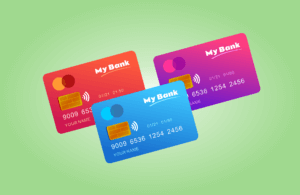Home ∙ Credit Score Ranges ∙ 625 credit score
A credit score of 625 is considered fair. Improving it requires making on-time payments and avoiding unnecessary debt, such as payday loans.
These types of consumers are often considered a high lending risk by most lenders and financial institutions. According to the credit bureau Experian, 28% of consumers in the “fair” credit range are likely to become delinquent on a loan or line of credit.1
Key Takeaways for a 625 Credit Score
Overview of Your
Credit Rating
625 is considered a fair credit rating. While this isn’t the lowest range of credit score tiers, fair credit consumers are often considered a high lending risk.
Borrowing Options With a
625 Credit Score
Cash advances and payday loans are available, but should be used with caution. Other loan types may also be available but with higher interest rates.
Improving a 625
Credit/FICO Score
People can improve their credit scores by paying bills on time, reducing credit utilization, prioritizing debt repayment, keeping financial accounts open, and avoiding applications for new credit.
Is a 625 Credit Score Good?
According to most major credit bureaus, 625 is a fair or average credit score. Fair credit scores include all scores that fall within the range of 580 and 669. While this score isn’t exactly poor credit, consumers with a 625 credit score may have a more challenging time getting approved for certain types of loan or credit card products. The best way to rectify this and start getting better loan deals is for consumers to improve their credit scores.
What Can I Get Approved For?
Upgrade
4.4 Trustpilot Rating
- Rewards checking
- Personal loans
- Upgrade OneCard
- Premier savings
Upgrade is a finance company that provides affordable and responsible credit products to borrowers in need. They offer spending cards and personal loans. Loans range from $1,000 to $50,000, and personal credit line cards range from $500 to $25,000.
Min Credit Score Depends on the Product You Choose
Consumer Credit Union
4.8 Ninja Star Rating
- Personal loans & auto loans
- Mortgages
- Credit cards
- Banking solutions
Like other credit unions, Consumers Credit Union is an open-to-the-public, not-for-profit institution. This credit union offers a wide range of products and services to members—checking, savings, debit and credit cards, vehicle and consumer loans, money market accounts and certificates.
Check out Their Website for More Information on Products and Services
Creditstrong
4.0 Ninja Star Rating
- Installment or revolving credit
- Flexible pricing
- Build credit history
- Build your savings
CreditStrong offers safe and secure solutions to help borrowers build credit. CreditStrong offers two different types of accounts: installment and revolving. These accounts are a combination of a savings account and either a secured installment loan or a secured revolving line of credit.
No Minimum Credit Score Required
While finding approval for many types of loans may be difficult for consumers with fair credit scores, it isn’t impossible. Below are a few loan types you may want to look into when searching for a loan with a 625 credit score.
Personal Loans
Personal loans are probably the most common type of funding available due to their versatility. Loan amounts for a personal loan can range anywhere from a few hundred dollars to a few thousand dollars, making them an ideal solution for a wide variety of expenses.
Furthermore, many personal loan lenders consider more than just credit scores and credit history when approving applicants for loans. They also consider income, assets, and other financial data that could help fair credit borrowers receive a better deal.
Bank Loans vs. Credit Unions
Consumers can access personal installment loans through lenders like banks or credit unions. Banks, however, rarely work with consumers with fair or poor credit. Instead, banks usually only work with borrowers with a pristine credit history. And so, with fair credit, you may have a better chance of approval for a personal loan with a credit union. Credit unions are nonprofit organizations that cater to consumers of all credit types, including those with fair or poor credit. Just keep in mind that you’ll have to become a credit union member before you can access their loans and other financial products.
Credit Cards
You may also opt for an unsecured credit card instead of getting a personal loan. Some popular credit card products include:
- Capital One SavorOne Student Cash Rewards Credit Card
- Capital One Platinum Credit Card
- Mission Lane Cash Back Visa® Credit Card
- Capital One QuicksilverOne Cash Rewards Credit Card
- Citi Custom Cash® Card
- Avant Credit Card
- Citi Double Cash® Card
- Navy Federal Credit Union Platinum Card
However, credit card debt is a real issue for many consumers. According to the Federal Reserve, credit card debt increased by $50 billion in the fourth quarter of 2023 to reach a high of $1.3 trillion.2
You may also opt for a secured credit card to help prevent yourself from accumulating too much credit card debt. With secured credit cards, your credit limit is backed up by a security deposit, which issuers will draw from if you miss a monthly payment. But, when used responsibly, secured credit cards like the Secured Chime Credit Builder Visa® Credit Card can help improve credit utilization rates as well as give consumers access to a line of credit.
Auto Loans
An auto loan, also called a car loan, is a loan to help consumers purchase a new or used vehicle. While interest rates and terms are usually determined by the borrower’s credit history, fair credit borrowers may be able to get a better deal on their car loan by:
- Contributing a larger down payment
- Using a cosigner
- Picking a slightly older car that may be cheaper than a newer model
Car Title Loans
Car title loans are a type of secured loan that uses the borrower’s free-and-clear vehicle title as collateral. Approval for title loans depends heavily on the amount of equity in the vehicle being used as collateral; usually, the more equity, the higher the loan amount. Like all secured loans, borrowers risk having their collateral repossessed by the lender if they miss a certain amount of payments or default on their loan terms.
Products and Services To Help Improve a 625 Credit Score
By keeping a close eye on your credit reports and spending habits you’ll be well on your way towards a good credit score! Below are more details on some products that may help you along the way.
Professional Monitoring of Your Credit Reports
While you can check your credit report on your own, it may also be a good idea to add some extra coverage while working on improving your credit.
Credit monitoring services can help you keep tabs on your credit history and credit scores and notify you about errors or suspicious activity you may not have caught on your own. Below are a few credit monitoring services:
- IdentityForce
- myFICO
- Aura Company
- Experian
- Credit Sesame
- Equifax
- Credit Karma
- Identity Guard
- Capital One
Budgeting Apps
If you want to improve your credit history, you’ll have to be on top of your spending and financial habits. Below are a few apps that can help you do just that:
- YNAB (You Need a Budget): Good for hands-on and zero-based budgeting.
- Goodbudget: Ideal for consumers who want to utilize hands-on budgeting methods like the envelope system in tandem with a budgeting app.
- EveryDollar: Great for simplified zero-based budgeting.
- Empower Personal Wealth: Good for people who want to track spending and savings along with their budget.
- PocketGuard: For users who want a simplified budgeting system.
- Honeydue: Designed for couples who are managing a budget and household expenses together.
Utilize Services That Report Extra Payments to Credit Bureaus
Special credit improvement programs can help you boost your credit score by showing credit bureaus payments and positive financial history they may not have been aware of before. Some popular credit-boosting programs you can sign up for today are:
- Experian Boost: Reports positive payment history for subscription services and other recurring payments not traditionally reported to credit bureaus.
- TurboTenant Rent Reporting: Reports positive payment history for your rent. Usually, credit bureaus track payments on mortgages but not rent.
- UltraFICO: An alternative credit scoring model that uses your checking and savings account activity to determine your credit score.
- Grow Credit: Reports subscription service payments and gives users a special revolving line of credit to improve credit utilization.
Credit Repair Companies
If you have no idea where to start when it comes to improving your credit history, a credit repair company may be able to help you out. With a credit repair company, you’ll work with a credit counselor to develop a plan on how you can decrease debts, get your spending habits in order, and help improve your credit scores. Some credit repair companies you may consider are:
- Credit Saint
- Credit Versio
- The Credit Pros
- The Credit People
- Sky Blue Credit
Benefits of Improving a 625 Credit Score
Some of the benefits you’ll be able to enjoy once you have a higher credit score are:
- Easier loan approval
- Higher credit limit on credit cards
- Better deals on insurance and other types of coverage
- Lower interest rates
- More affordable repayment terms
How to Improve Your 625 Score
Check out these quick tips on how you can start to improve your credit scores:
- Focus on payment history: Making your due payments on bills and loans is essential if you want to maintain and improve your credit.
- Limit new credit inquiries: Try to limit loan inquiries, especially for multiple credit accounts, until you have boosted your score. You’ll save your credit report from an unnecessary hard credit check and prevent yourself from accumulating more debt!
- Check your credit reports often: You can access an official credit report from all three major credit bureaus at least once a year, as well as pull soft credit checks as often as you like. That way, you can see how your credit improvement journey is going and catch any errors or inconsistencies that could be bringing your score down.
FAQs About 625 Credit Scores
Can improving my credit mix impact my 625 credit score positively?
Improving your credit mix can have a positive impact on your credit score. Credit scoring models often consider the variety of credit accounts you have, such as credit cards, installment loans, mortgage loans, and auto loans. Demonstrating that you can manage different types of credit responsibly may contribute to a better credit score. However, it’s important to only take on new credit if you can manage it responsibly and avoid accumulating debt unnecessarily.
How does closing old credit accounts affect my credit score?
Closing old credit accounts, especially those with a long history, can negatively impact your credit score in two ways. First, it can reduce your overall available credit, which might increase your credit utilization ratio—a key factor in credit scoring. Second, closing your oldest accounts can shorten your credit history length, which can also negatively affect your score. It’s often advisable to keep old accounts open, even if you’re not using them, to maintain a longer credit history and lower credit utilization ratio.
Are there any specific strategies for negotiating lower interest rates on existing debts with a credit score of 625?
Yes, there are strategies you can use to negotiate lower interest rates on existing debts, even with a credit score of 625. Start by reviewing your current financial situation and credit score to understand your bargaining position. Contact your creditors or lenders to inquire about any hardship programs or interest rate reductions available. Be prepared to explain your financial situation and how a lower interest rate could help you manage your payments better. Demonstrating a history of on-time payments or improving your credit score since you obtained the loan can also strengthen your case. Remember, lenders are often more willing to negotiate if they believe it will help ensure repayment.
What Interest Rate Can I Get With a 625 Credit Score?
Most lenders refer to the financial data on a borrower’s credit report when determining interest rates and other loan details. With a 625 credit score, you may only qualify for interest rates on the higher side. While using a cosigner may help you access lower rates, the best way to get the lowest interest rates on loans is to work on improving your credit reports.
Can I Buy a House With a 625 Credit Score?
With a fair credit score, getting approved for a mortgage will take some time and research. A great place to start is learning about the different types of mortgages available.
Mortgage Type | Definition | Benefits | Typical Requirements | Potential Drawbacks |
Conventional Loans | Standard loans not insured or guaranteed by the federal government. | Lower interest rates for high-credit borrowers. | Higher credit scores, lower debt-to-income ratios. | Requires a larger down payment. |
Government-Backed Loans | Loans insured or guaranteed by the federal government. | Lower down payments and flexible credit requirements. | Varies by program. | Limited to certain borrowers, such as veterans or rural property buyers. |
Jumbo Loans | Loans that exceed the conforming loan limits set by the FHFA. | Allows purchase of higher-priced properties. | Higher credit scores, lower debt-to-income ratios. | Higher down payments and interest rates. |
Fixed-Rate Loans | Loans with an interest rate that remains the same for the entire loan term. | Predictable monthly payments. | Varies, often similar to conventional loans. | May start with a higher interest rate than adjustable-rate loans. |
Adjustable-Rate Loans | Loans with an interest rate that can change over time. | Lower initial interest rates. | Varies, often similar to conventional loans. | Payments and interest rates can increase over time. |
FHA Loan | A government-backed loan insured by the Federal Housing Administration. | Low down payments, flexible credit requirements. | Lower credit scores accepted, mortgage insurance required. | Requires mortgage insurance premiums. |
VA Loan | A loan guaranteed by the Department of Veterans Affairs. | No down payment required, no mortgage insurance. | Available to veterans, active military, and some military spouses. | Limited to eligible borrowers. |
USDA Loan | A loan program backed by the United States Department of Agriculture. | No down payment required, reduced mortgage insurance. | Must be in an eligible rural or suburban area, income limits apply. | Property and income restrictions. |
Disclosure: This table provides a general overview, but the specifics of each loan type can vary based on the lender, the borrower’s financial situation, and changes in government policy or market conditions. It’s important for potential borrowers to consult with a mortgage advisor or lender to get the most current and applicable information for their situation.





